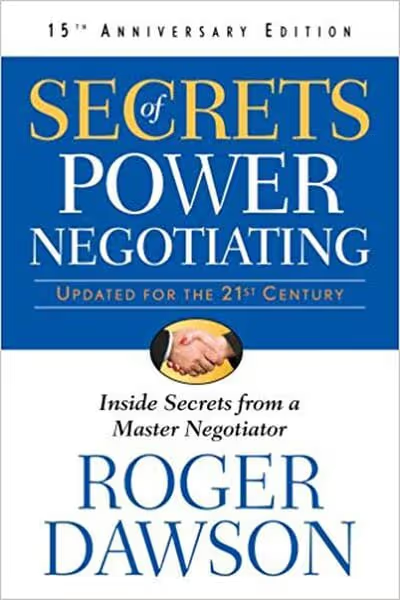.avif)
There is a vast selection of children's books about the senses, and chances are we read many of them when we were younger. One of our very first scientific classes also covers the five senses of the human body. However, unless they are a part of a very specialised field of study or career that we pick for ourselves, the mechanisms that allow us to access these experiences fade into the background as we grow up surrounded by the rich sensory experiences that the world has to offer.
As fascinating as the experiences themselves can be is how we interpret various stimuli. Understanding how the human senses function and how biological, genetic, environmental, and cultural variables affect them helps us get a greater understanding of the wonders of the world around us by bringing to light the uniqueness and fragility of our sensory perceptions. Eight works are listed below that demystify human senses and open readers' eyes to fresh perspectives.
Diane Ackerman's lusciously written grand tour of the realm of the senses includes conversations with an iceberg in Antarctica and a professional nose in New York, along with dissertations on kisses and tattoos, sadistic cuisine and the music played by the planet Earth.
Following the phenomenal success of his international bestseller Musicophilia, the inimitable Oliver Sacks returns with another book on the extraordinary interaction between our brain and our senses — in this case, vision. In The Mind's Eye, Sacks examines questions ranging from the primary experiences of how we perceive depth or color or motion to the complex matter of how different individuals have varied ways of thinking and experiencing or recreating the visual world. Like The Man Who Mistook His Wife for a Hat and An Anthropologist on Mars, Sacks's new book is based primarily on individual stories — including Sacks's own experience of an ocular tumor that left him unable to perceive depth. As always, he embeds these case histories in a rich historical and scientific context. Sacks goes beyond basic vision to explore perception, hallucination and the power of visualization, as well as the ocular effects of migraine, epilepsy and other conditions. Oliver Sacks is our perfect guide to the visual world, a realm that, it turns out, is much, much more complicated than we could have imagined.
We are out of touch. Many people fear that we are trapped inside our screens, becoming less in tune with our bodies and losing our connection to the physical world. But the sense of touch has been undervalued since long before the days of digital isolation. Because of deeply rooted beliefs that favor the cerebral over the corporeal, touch is maligned as dirty or sentimental, in contrast with supposedly more elevated modes of perceiving the world.
How to Feel explores the scientific, physical, emotional, and cultural aspects of touch, reconnecting us to what is arguably our most important sense. Sushma Subramanian introduces listeners to the scientists whose groundbreaking research is underscoring the role of touch in our lives. Through vivid individual stories - a man who lost his sense of touch in his late teens, a woman who experiences touch-emotion synesthesia, her own efforts to become less touch averse - Subramanian explains the science of the somatosensory system and our philosophical beliefs about it. The book highlights the growing field of haptics, which is trying to incorporate tactile interactions into devices such as phones that touch us back and prosthetic limbs that can feel. How to Feel offers a new appreciation for a vital but misunderstood sense and how we can use it to live more fully.
Whether it’s a grilled cheese sandwich with tomato soup, maple-cured bacon sizzling hot from the pan, or a salted caramel coated in dark chocolate, you know when food tastes good to you. But you may not know the amazing story behind why you love some foods and can’t tolerate others. Now, in Taste What You’re Missing, the first book that demystifies the science of taste, you’ll learn how your individual biology, genetics, and brain create a personal experience of everything you taste—and how you can make the most of it.
A seasoned food developer to whom food companies turn for help in creating delicious new products, Barb Stuckey reveals that much of what we think we know about how taste works is wrong. And the truth is much more fascinating—for instance, your tongue is not divided into quadrants for sweet, sour, salt, and bitter and only a fraction of what you taste happens in your mouth. As Stuckey explains how our five senses work together to form “flavor perceptions,” she tells intriguing stories about people who have lost the sense of smell or taste and the unexpected ways their experience of food changes as a result. You’ll learn why kids (and some adults) turn up their noses at Brussels sprouts and broccoli, how salt makes grapefruit sweet, and why you drink your coffee black while your spouse loads it with cream and sugar.
Stuckey also provides eye-opening experiments in which you can discover your unique “taster type” and learn why you react instinctively to certain foods, in particular why your response to bitterness is unique. You’ll find ways to improve your ability to discern flavors, detect ingredients, and devise taste combinations in your own kitchen for delectable results.
Taste What You’re Missing gives curious eaters, Food Network watchers, kitchen tinkerers, and armchair Top Chefs the understanding and language to impress friends and families with insider knowledge about everything edible. What Harold McGee did for the science of cooking Barb Stuckey does for the science of taste in Taste What You’re Missing, a calorie-free way to get more pleasure from every bite.
What if history had a sound track? What would it tell us about ourselves? Based on a thirty-part BBC Radio series and podcast, Noise explores the human dramas that have revolved around sound at various points in the last 100,000 years, allowing us to think in fresh ways about the meaning of our collective past.
Though we might see ourselves inhabiting a visual world, our lives have always been hugely influenced by our need to hear and be heard. To tell the story of sound—music and speech, but also echoes, chanting, drumbeats, bells, thunder, gunfire, the noise of crowds, the rumbles of the human body, laughter, silence, conversations, mechanical sounds, noisy neighbors, musical recordings, and radio—is to explain how we learned to overcome our fears about the natural world, perhaps even to control it; how we learned to communicate with, understand, and live alongside our fellow beings; how we've fought with one another for dominance; how we've sought to find privacy in an increasingly noisy world; and how we've struggled with our emotions and our sanity.
Oratory in ancient Rome was important not just for the words spoken but for the sounds made—the tone, the cadence, the pitch of the voice—how that voice might have been transformed by the environment in which it was heard and how the audience might have responded to it. For the Native American tribes first encountering the European colonists, to lose one's voice was to lose oneself. In order to dominate the Native Americans, European colonists went to great effort to silence them, to replace their "demonic" "roars" with the more familiar "bugles, speaking trumpets, and gongs."
Breaking up the history of sound into prehistoric noise, the age of oratory, the sounds of religion, the sounds of power and revolt, the rise of machines, and what he calls our "amplified age," Hendy teases out continuities and breaches in our long relationship with sound in order to bring new meaning to the human story.
Focusing their gaze on our most primordial sense, writer and perfumer Tanaïs weaves a brilliant and expansive memoir, a reckoning that offers a critical, alternate history of South Asia from an American Bangladeshi Muslim femme perspective. From stories of their childhood in the South, Midwest, and New York; to transcendent experiences with lovers, psychedelics, and fragrances; to trips home to their motherland, Tanaïs builds a universe of memories and scent: a sensorium. Alongside their personal history, and at the very heart of this work, is an interrogation of the ancient violence of caste, rape culture, patriarchy, war, and the inherited ancestral trauma of being from a lush land constantly denuded, a land still threatened and disappearing because of colonization, capitalism, and climate change.
Structured like a perfume—moving from base to heart to head notes—IN SENSORIUM interlaces eons of South Asian perfume history, erotic and religious texts, survivor testimonies, and material culture with memoir. In Sensorium is archive and art, illuminating the great crises of our time with the language of Liberation.
The Earth teems with sights and textures, sounds and vibrations, smells and tastes, electric and magnetic fields. In An Immense World, Ed Yong coaxes us beyond the confines of our own senses to encounter beetles that are drawn to fires, turtles that can track the Earth’s magnetic fields, fish that fill rivers with electrical messages, and even humans who wield sonar like bats. We discover that a crocodile’s scaly face is as sensitive as a lover’s fingertips, that the eyes of a giant squid evolved to see sparkling whales, that plants thrum with the inaudible songs of courting bugs, and that even simple scallops have complex vision. We learn what bees see in flowers, what songbirds hear in their tunes, and what dogs smell on the street. We listen to stories of pivotal discoveries in the field, while looking ahead at the many mysteries that remain unsolved.
Funny, rigorous, and suffused with the joy of discovery, An Immense World takes us on what Marcel Proust called “the only true voyage . . . not to visit strange lands, but to possess other eyes.”



.avif)





.webp)







.webp)








































